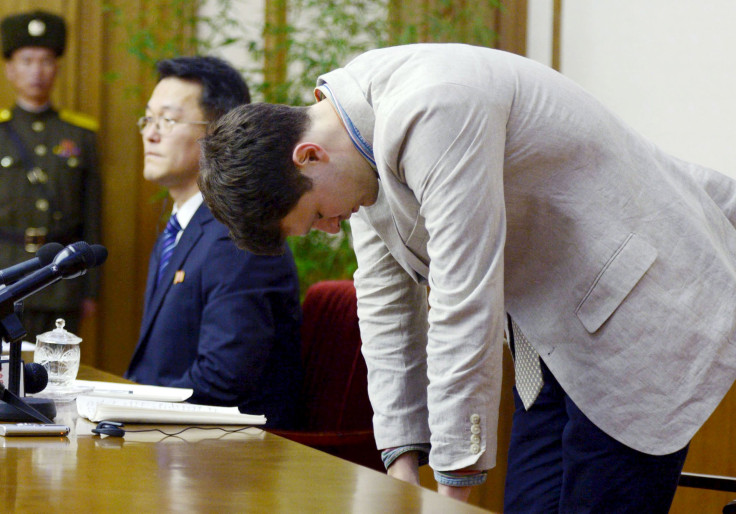Otto Warmbier, US Student Detained In North Korea, Gets Consular Help

An American student detained in North Korea for allegedly attempting to take home a political banner from his hotel on a dare has received a diplomatic visit, reports said Thursday.
University of Virginia student Otto Warmbier, 21, has been charged with committing a "hostile act against the state" with the help of the United States, which does not have diplomatic relations with North Korea.
U.S. State Department spokesman John Kirby said in Washington that the Swedish Ambassador who handles consular matters with Pyongyang met with the detained American on Wednesday, the Associated Press reported.
Warmbier appeared before the press this week and confessed to his alleged crime. He said he entered the reclusive state in December as part of a tour group and was subsequently arrested while preparing to board a flight out of the country.
No further details were made available, although Kirby said the U.S. government was in close contact with the Swedish authorities.
When Warmbier appeared before journalists in Pyongyang this week, he tearfully apologized for attempting to steal a political banner from his hotel in January.
Warmbier said he removed the banner as "trophy" for an unidentified church member who had promised him a used car worth about $10,000. The man had also promised to give his mother some $200,000 in case he was arrested and could not go home.
"I understand the severity of my crime and I have no idea what sort of penalty I may face," Warmbier told reporters, according to a video clip by the Voice of America.
"But I am begging to the Korean people and government for my forgiveness, and I am praying to the high heavens so that I may be returned home to my family," he said.
North Korea has often detained Americans and other foreign citizens on charges that they are made to read before journalists. Detainees often recant their confessions after their release, reports said.
© Copyright IBTimes 2024. All rights reserved.




















